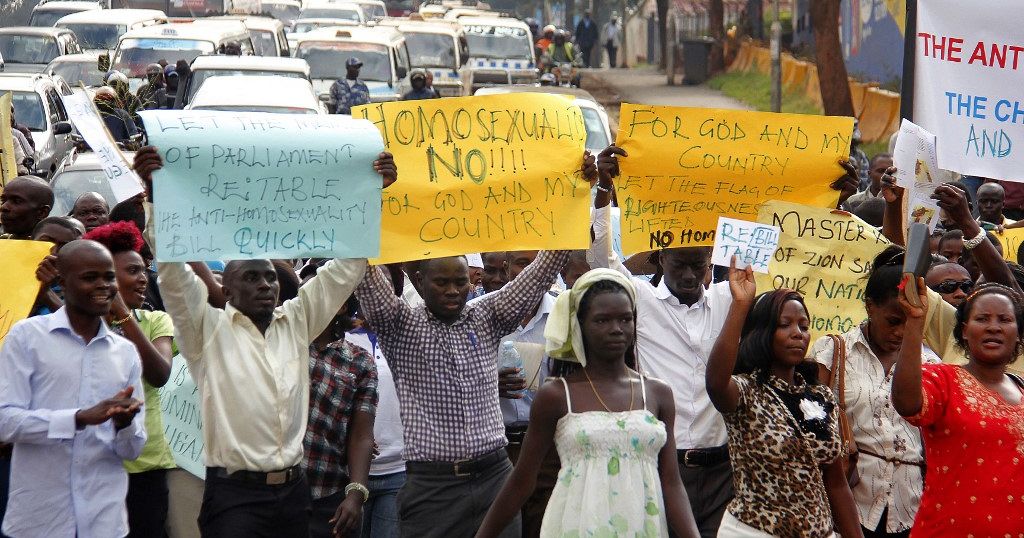By: Mwanje Gideon
We may have underlooked the quote from Albert Einstein that ‘I fear the day when the technology overlaps with our humanity. The world will only have a generation of idiots.’ We may not have construed the meaning of technology, but now with technology’s advancement, the world has forgotten humanity.
In the trending news, the President of Uganda assented to the Anti-Homosexuality Act on 26 May 2023. It is prudent to remember that earlier in 2014, the court struck out the anti-LGBTQ Law on procedural impropriator grounds. This was in the case of Oloka-Onyango & 9 Ors v Attorney General (Constitutional Petition No. 8 of 2014) [2014] UGSC 14 (1 August 2014) court argued that the act of the 9th Parliament in enacting the Anti-Homosexuality Act 2014 on 20 December 2013 without quorum in the House is inconsistent with and in contravention of Articles 2(1) and (2) and 88 of the Constitution of the Republic of Uganda 1995 and Rule 23 of the Parliamentary Rules of Procedure and thus null and void.
That the Rt. Hon. Speaker of not entertaining the objection that there was no quorum was an illegality under Rule 23 of the Rules of Procedure, which tainted the enacting process and rendered it a nullity. The Act itself, so enacted for this reason, was unconstitutional. This was preceded by a series of events including the Western governments suspending aid to Uganda, and other sanctions, including the imposition of visa restrictions and security cooperation.

This new law has come after a long run of hide-and-seek games between the three arms of Government. For legislators, it has been a walking bomb just waiting to explode in the nick of time. The Anti- Homosexuality Act is by no means the first strict law against the Western LGBTQ as far as African norms and customs are concerned, and Uganda sets a precedent. It has come when many homosexuality hullabaloos are being heard in schools and other gathering places.
It was just in a matter of time the BBC reported that “Uganda’s government has resisted pressure to drop the legislation.”
It further averred that Uganda’s ‘progress in tackling HIV is in “grave jeopardy” after the President approved tough new anti-homosexuality legislation, the UN and US have warned.
They still emphasized that this Law is still among the harshest anti-LGBTQ laws in the world. Moreover, there’s a confrontation that the convicted faces life imprisonment and the death penalty for so-called aggravated cases, which include having gay sex with someone below the age of 18 or where someone is infected with a life-long illness, including HIV.
It further provided that the US President’s Emergency Plan for Aids Relief (Pepfar), UN Aids and the Global Fund were deeply concerned about the “harmful impact” of the legislation. Mr Biden also said Washington was considering “additional steps, including the application of sanctions and restriction of entry into the United States against anyone involved in serious human rights abuses or corruption”.
BBC reported that the European Union foreign policy chief Josep Borrell said the measure goes against international human rights law and will impact the country’s ties with its global partners. “This law is contrary to international human rights law and to Uganda’s obligations under the African Charter on Human and People’s Rights, including commitments on dignity and non-discrimination, and the prohibition of cruel, inhuman or degrading punishment, ” Chief Joseph Borrell said in a statement about the Ugandas’ Anti-Homosexuality Act . “Together as one, we call for the Act to be reconsidered so that Uganda may continue on its path to ensure equitable access to health services and end Aids as a public health threat by 2030,” the statement said.
It should be noted that the only rights in Uganda a person can claim to be non-derogable are found under Article 44 of the 1995 constitution as amended, this is constructed mutatis mutandis with Article 2(2) of the 1995 constitution of Uganda as amended. Far from that, all rights, however handsome they look, the state has powers to interfere with them for the good of public interest as envisaged in Article 43 of the 1995 constitution. The objectives of the supreme Law of the land is also to the effect that the state shall promote and preserve the culture and aspirations of its citizens.

A large part of the country has applauded the President’s decision to assent to such a bill intended to preserve the African culture. It also supports the maxim of law ‘conjunctio mariti et feminae est de jure naturae’ which literally means that the union of husband and wife derives from the law of nature.
Uganda is a God-fearing country portrayed under the national motto on the coat of Arms, which reads “FOR GOD AND MY COUNTRY”. In some parts of Uganda, LGBTQ is referred to as Gomora and Sodoma in a reflection of its purported barbaric and sinful nature, according to most natives in the country.
The main questions posed by the populace are: To what extent should Africans bend low to Western cultures on top of theirs in light that whatever comes from the West is right; and To what extent should African values be raped, and we play a functus officio moment? There is a strong rationale for why legislators and the executive have stood firm over the cutoff aid threats and defended the culture, values and aspirations of the people of Uganda.
The other laws assented to are; the Museums and Monuments Act, 2023 on 27 April 2023; the Uganda Human Organ Donation and Transplant Act, 2022 on 15 March 2023 and the Markets Act, 2023 on 22 May 2022. The Parliament of Uganda is the country’s legislative body. Unicameral, the most significant of the Ugandan Parliament’s functions is to pass laws that will provide good governance in the country. The government ministers are bound to answer to the people’s representatives on the floor of the House.





















Discussion about this post